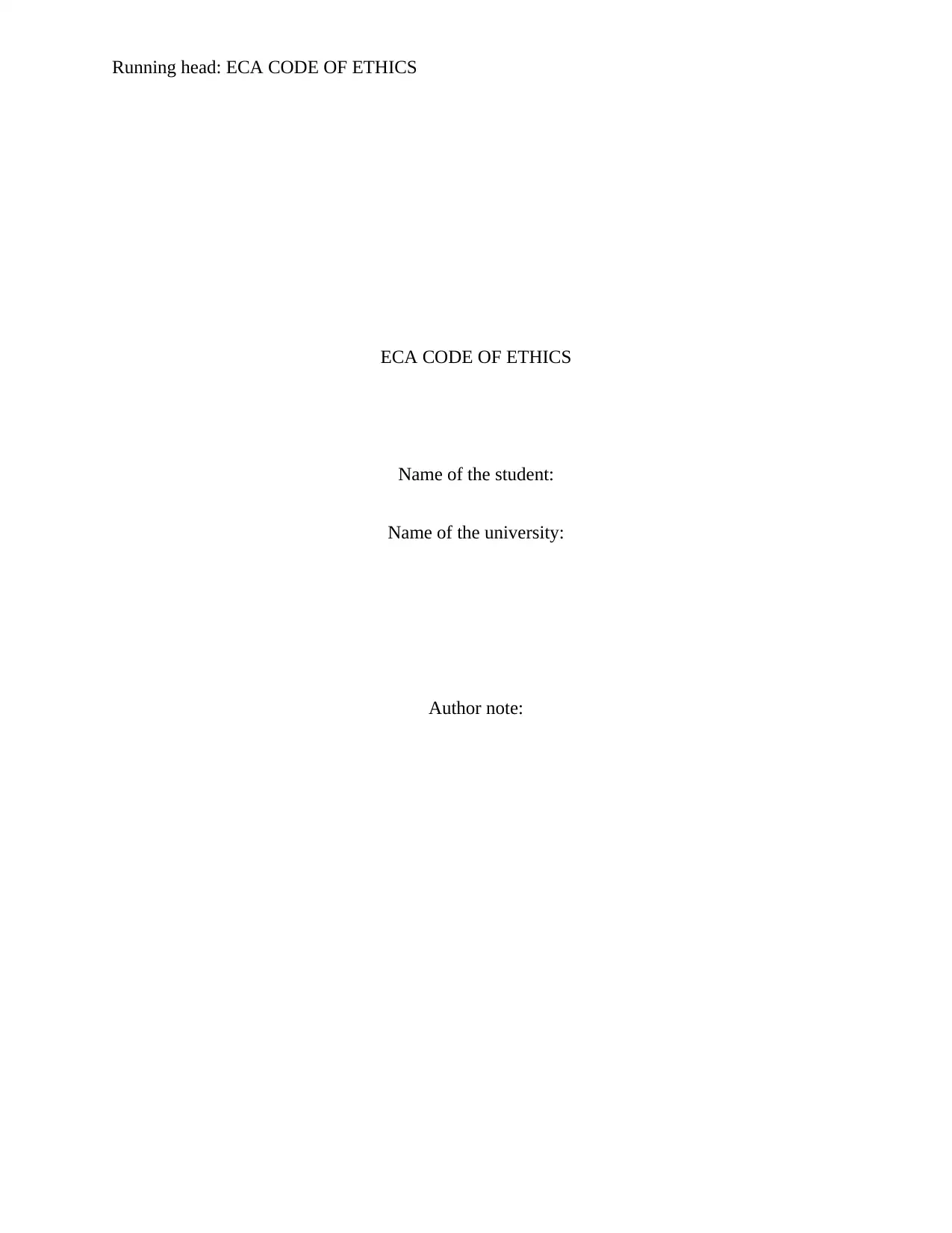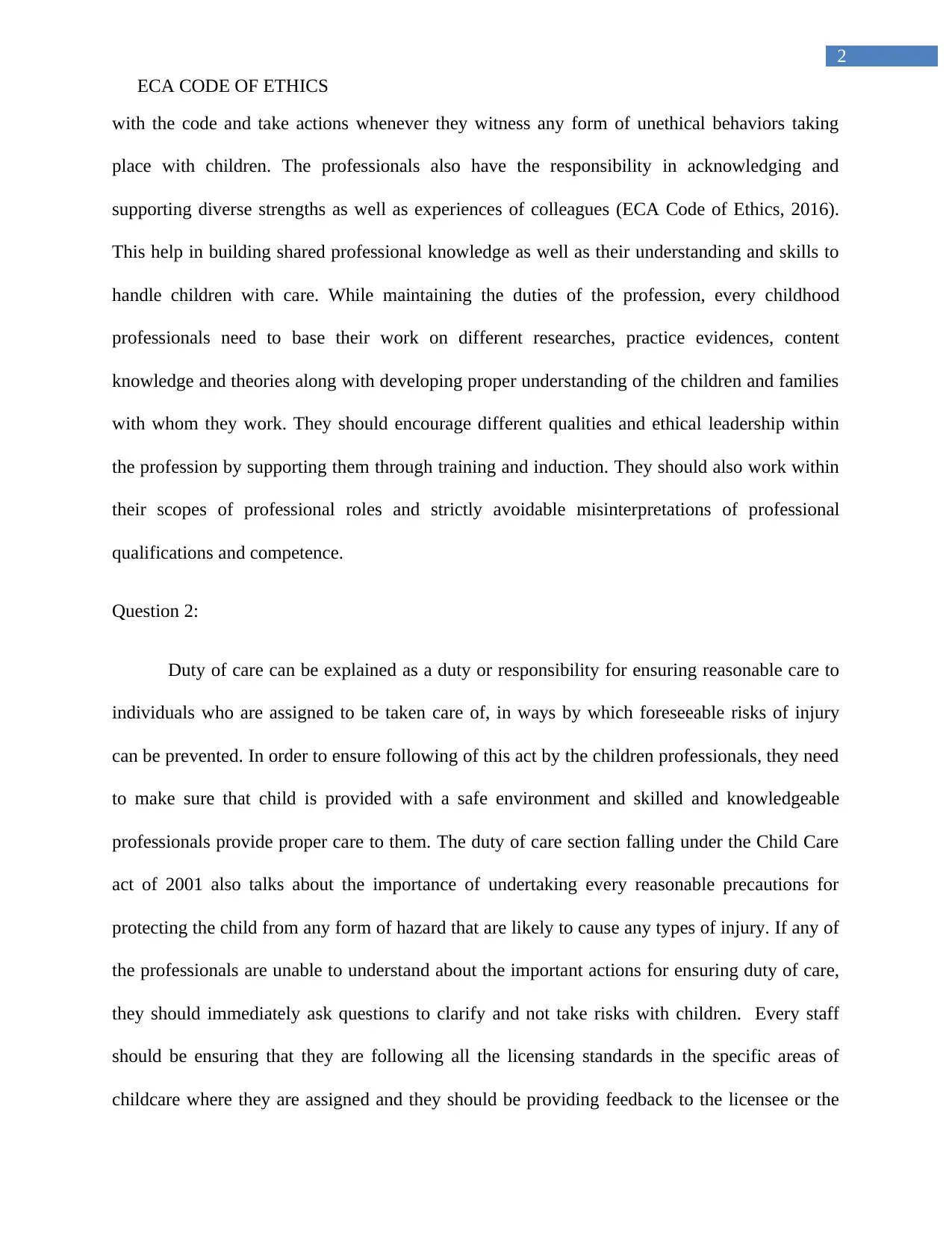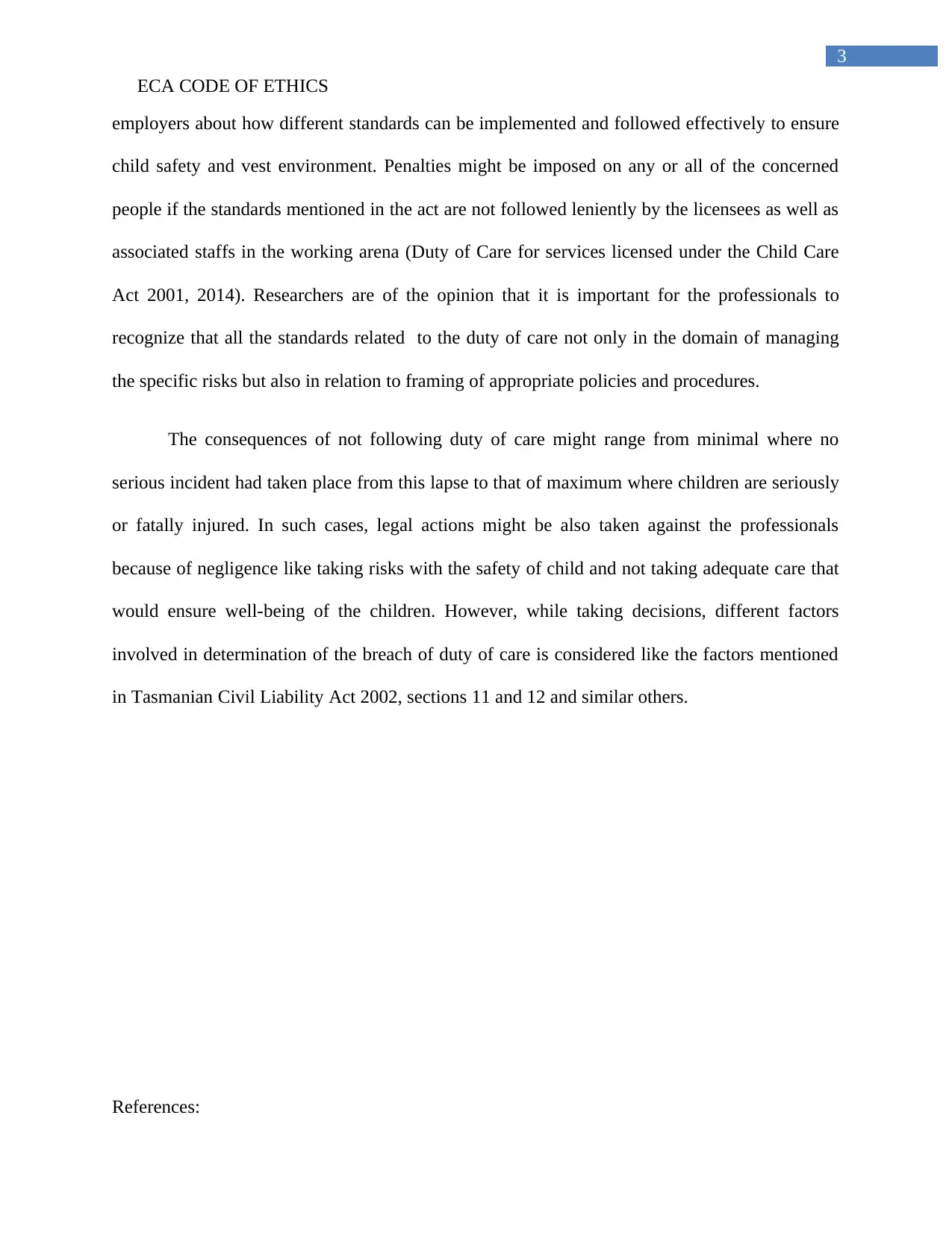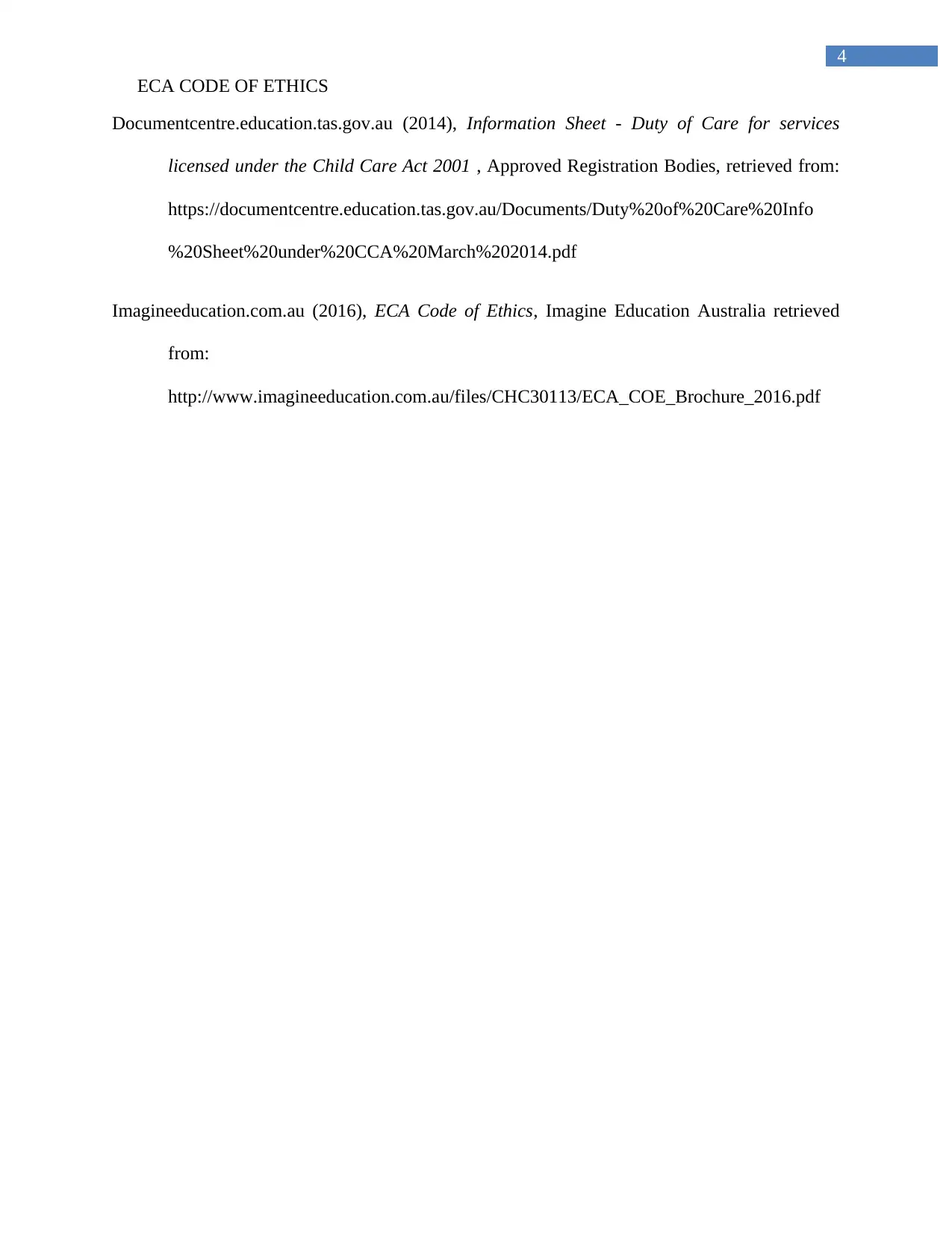ECA Code of Ethics and Duty of Care in Childcare: A Detailed Analysis
VerifiedAdded on 2021/04/24
|5
|996
|227
Homework Assignment
AI Summary
This assignment explores the ECA Code of Ethics and Duty of Care in childcare settings. It defines the Code of Ethics as an aspirational framework for ethical responsibilities of childhood professionals, emphasizing the protection, safety, and well-being of children. The assignment highlights the importance of speaking out against unethical practices, respecting Aboriginal and Torres Strait Islander caregiving traditions, and developing trust with families and communities. It details the responsibilities of professionals in communication, interaction, and creating safe environments, while also addressing non-discrimination and ethical leadership. Furthermore, the assignment explains the concept of Duty of Care, emphasizing the need for a safe environment, skilled professionals, and precautions against foreseeable risks. It refers to the Child Care Act of 2001 and discusses the consequences of failing to adhere to duty of care standards, including potential legal actions, while considering factors like those in the Tasmanian Civil Liability Act 2002. The assignment also references relevant documents from the Department of Education in Tasmania and Imagine Education Australia.
1 out of 5











![[object Object]](/_next/static/media/star-bottom.7253800d.svg)